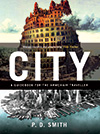Twitter can be seriously distracting, especially when the Minister of Science keeps sending you tweets.
Yesterday I saw a comment from science writer and broadcaster Colin Stuart (@skyponderer on Twitter):
"Anyone else worried that science and defence are now inextricably politically linked? with @lorddrayson doing both jobs!?"
Yes (I thought) that does sound worrying and I tweeted it on my page too. Within forty minutes Lord Paul Drayson himself replied (to me, note, not Colin - perhaps the Science Minister doesn't quite get Twitter?).
"What are you worried about?" he asked me.
I have to admit I was surprised. Actually that's a serious understatement. I sat in front of the screen for a few minutes wondering if I was seeing things. Don't Her Majesty's ministers of state have more urgent matters to attend to than dealing with comments on Twitter by authors? Perhaps it was a practical joke? A fake Lord perhaps?
But no, it really was Lord Drayson - Twitter bio “Father of 5, Minister For Science and Innovation, Labour peer, car nut: http://www.draysonracing.com/". Yes, that's him.
So I replied: "You shd ask @skyponderer - but history shows we shd all be concerned abt links between sci & defence." (Excuse the abbreviations but you only get 140 characters on Twitter.)
Then Colin joined in (no doubt justifiably peeved that the minister was ignoring him): "I agree with @PD_Smith, but I am also disappointed that science is undervalued enough not to need a full time minister...".
At the same time, other people began to contribute equally useful comments - @DrLucyRogers, @dr_david_w, @joergheber, @imascientist etc. But thereafter, silence - at least until this afternoon, when the Minister replied. Except he's not just "one" minister, but two.
Lord Drayson is now (thanks to Gordon Brown's latest Cabinet reshuffle) two ministers in one - he is both Science Minister and (reverting to a former role) Minister for Defence Procurement. Hence Colin's consternation, which I share.
This afternoon the two-in-one Minister again asked what was worrying us. I got my response in first (I should have been writing a review but was Twittering instead):
@PD_Smith: "1. why does Science not deserve its own minister? 2. Are there not ethical issues re unifying sci + military under 1 minister?"
This time @lorddrayson answered immediately: "In my view the more the sci minister is connected to wider roles in govt the more influence science has to the whole agenda."
@PD_Smith (two tweets in a row this time): "The logic of that is that you'll soon be taking on more portfolios? Sounds to me like a reduction in the import of sci. And what about combining sci + defence procurement? Does it send out the right message in an age of nuclear proliferation?"
In reply, the Noble Lord fired off five tweets in quick succession: "Science deserves a minister at the cabinet table. Thats key. Tick. Sci desrves a cabinet committee. Thats key too. Tick."
"But, many ministers have dual roles.. it really helps departments work together better. Silos in whitehall are not helpful."
"Many science issues are cross-departmental. Take GMES as an example. MOD / DECC / BERR / DIUS all had a view on earth observation"
"Re ethical issues. You have a point. I have to be absolutely clear on the separation between the 2 roles. Civil service r key."
I was pleased to have got him to at least concede that there was an ethical issue involved here (although also slightly confused by the idea that there might be silos in Whitehall. Nuclear bunkers I'd heard about, but missile silos?).
@PD_Smith: "I'm v glad to hear you accept there has to be separation. But I still say it sends out a mixed message to the rest of the world."
Side-stepping that, @lorddrayson continued: "However, many science breakthroughs originated in defence research: ultrasound, radar to mention 2".
@PD_Smith: "That's undeniable. But science should, and can be, about so much more than military hardware."
"I agree," @lorddrayson replied. "Defence is but a small part of the whole. "Science so what; So everything"....will continue from BIS... @sciencesowhat".
And with this rather hand-waving allusion to the grandeur of science and a website, @lorddrayson moved on to deal with other people's questions on this issue. As an exercise in government engaging with the public I give him full marks. Indeed, let's have more of it. But it didn't really cast much light on the question as to why this government thinks a full-time science minister is not needed, let alone deal with the ethical issues raised by lumping science and defence together under one minister. Maybe he will discuss these matters in more detail in the opinion piece the Times Higher Education Supplement offered him afterwards.
I have to say, chatting with the Minister for Science & Defence Procurement is one of the most intriguing Twitter experiences I have had to date. But I hope it doesn't happen every day. It's very distracting. And I have work to do.


